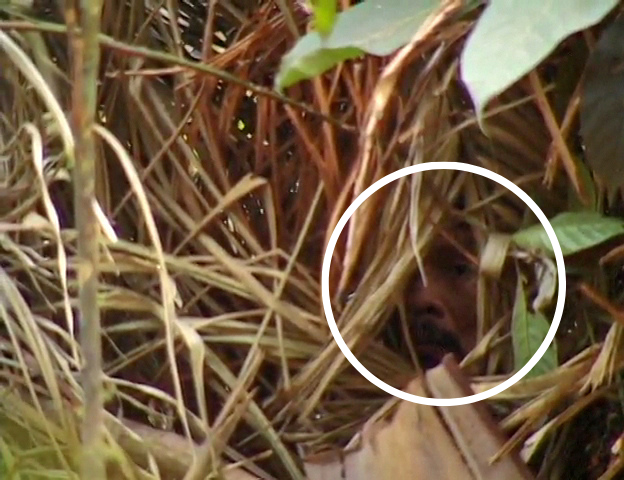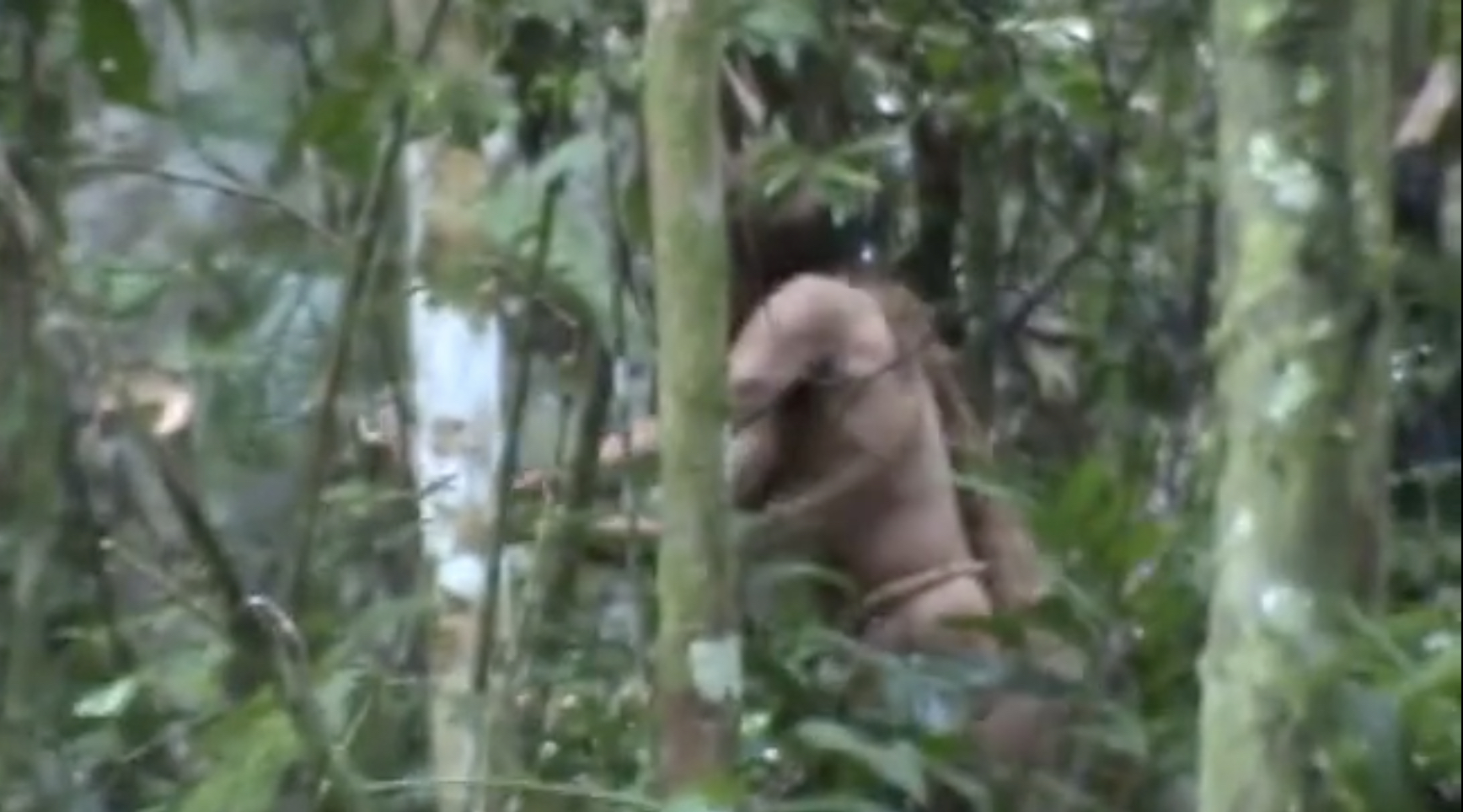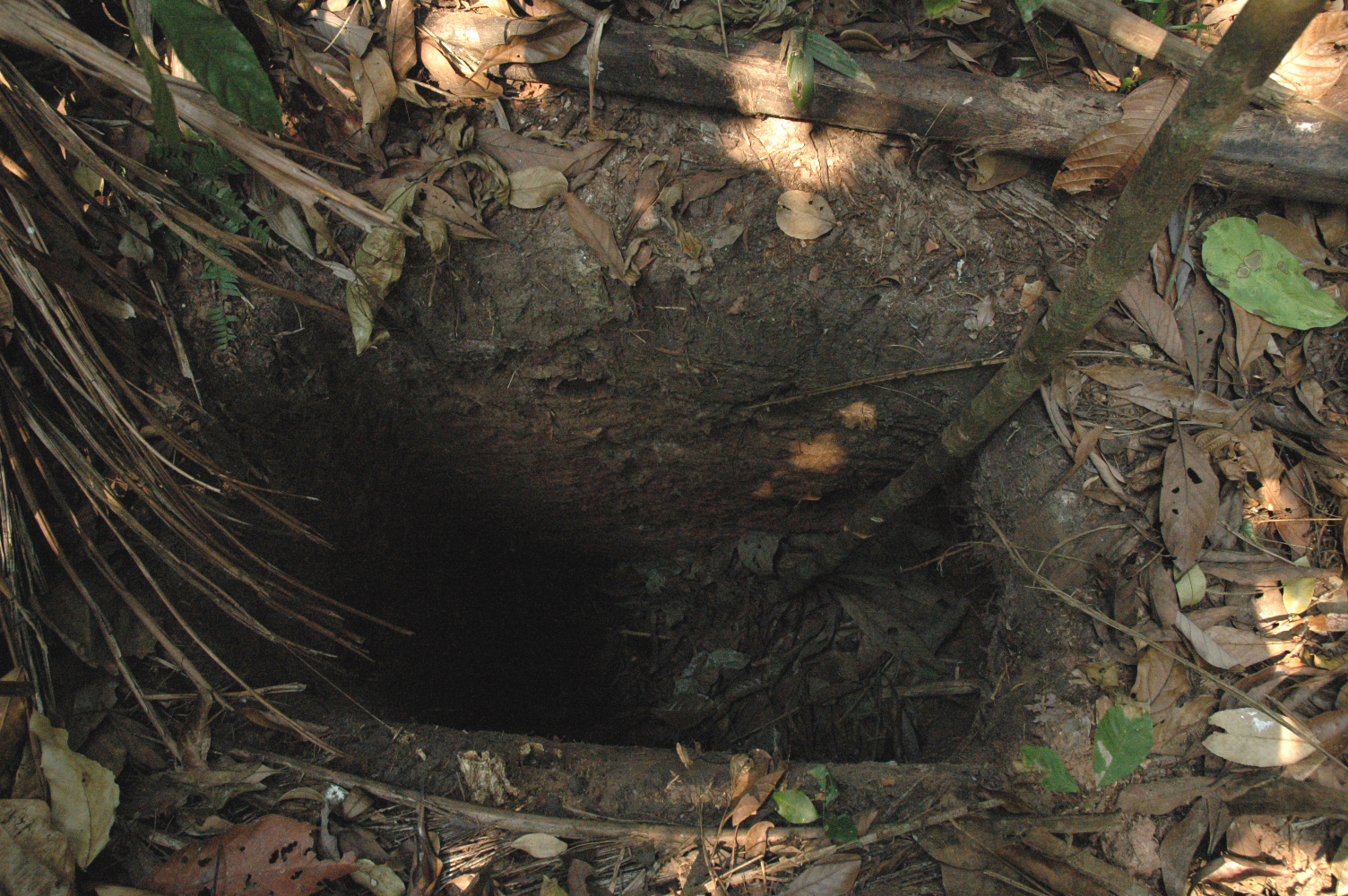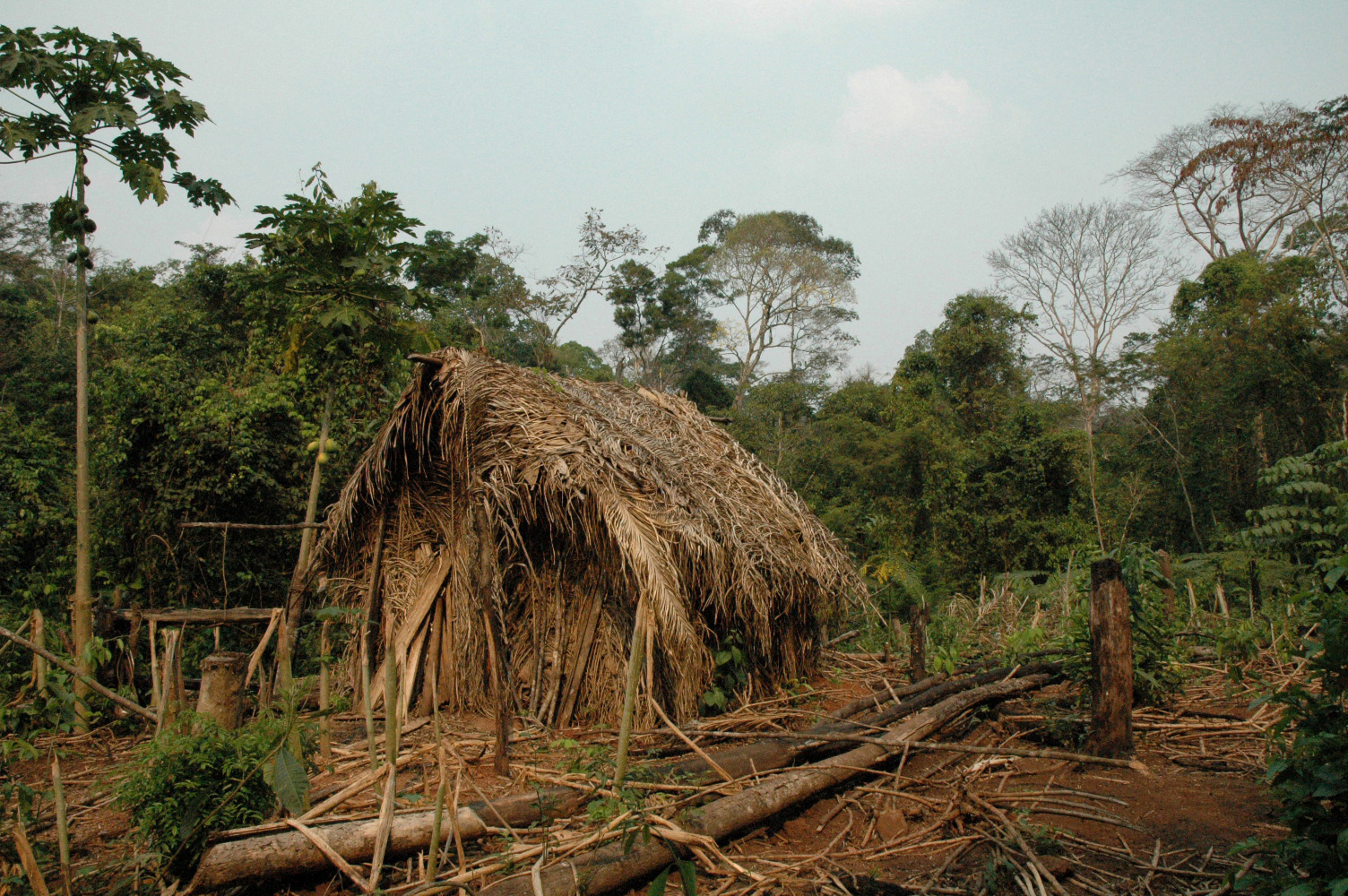'Man of the hole', the last member of an uncontacted tribe, dies in the Amazon
The man lived alone for 26 years after the massacre of his tribe

The last surviving member of a Brazilian Indigenous tribe that was uncontacted by the outside world has died, according to officials.
The man lived alone in the Brazilian Amazon rainforest for 26 years after his tribe was killed in a series of attacks by ranchers and miners that began in the 1970s, according to Survival International, a nonprofit organization that works with Indigenous peoples to protect their land rights.
The man’s real name is not known, so observers nicknamed him the "Man of the Hole" because of his practice of digging deep pits to trap animals or hide in.
The man's body was discovered on Aug. 23 by Altair José Algayer, a member of Brazil's Indigenous protection agency the National Indian Foundation (Funai), who found the man dead in a hammock outside his straw dwelling in the Tanaru Indigenous area in the state of Rondônia, bordering Bolivia. Brightly colored macaw feathers surrounded his body, leading Algayer to conclude that the man had arranged the feathers in anticipation of his own death.
Related: What happened to the 'vanished' colonists at Roanoke?
"No outsider knew this man's name, or even very much about his tribe — and with his death the genocide of his people is complete," Fiona Watson, a research and advocacy director at Survival International, who visited the tribe's territory in 2004, said in a statement. "For this was indeed a genocide — the deliberate wiping out of an entire people by cattle ranchers hungry for land and wealth."

A full forensic examination of the death is pending, but no traces of invaders or signs of violence were spotted at the site, leading officials to believe the man died of natural causes at an estimated age of 60 years old.
Sign up for the Live Science daily newsletter now
Get the world’s most fascinating discoveries delivered straight to your inbox.
It’s not known for certain why he had dug so many 10-foot (3 meter) holes, including inside his own dwelling. Some were filled with spearheads, while those inside his house had scratches on their walls, possibly a hint that they had some spiritual significance.

The man's troubles with invaders began in the 1970s when farmers took over land belonging to his tribe. Then, sometime in the 1980s, illegal ranchers gave the tribe offerings of sugar laced with rat poison, which killed most of the tribe’s members, according to Funai officials. This was followed by at least one other attack in the early 1990s in which the few survivors of the poisoning — said to be around six people — were shot and killed, Funai officials said. Only the "Man of the Hole" survived.
Local news reports indicate that over the next two decades, armed groups launched one or more assaults against the man and his home. After discovering the man's whereabouts in the mid-1990s, Funai representatives found evidence of Indigenous farmed land that had been destroyed by ranchers, and uncovered the remains of demolished Indigenous houses that had been pulled down by tractors. Funai officials left gifts of food and tools, but the man refused them, laying traps and shooting arrows at anyone who ventured too close.

In 1997, Brazilian officials designated 19,770 acres (8,000 hectares) of land in Tanaru territory as a reserve, fencing off an area where the man could live without disturbance. It became one of seven territories in Brazil preserved by Land Protection Orders (LPOs) — temporary legal measures barring economic activity in a region. But even with the measure in place, illegal deforestation and attacks continued.
"Because he resolutely resisted any attempts at contact, he died without revealing which ethnicity he belonged to, nor the motivations of the holes he dug inside his house," representatives of the Observatory for the Human Rights of Isolated and Recent Contact Indigenous Peoples (OPI) said in a statement reported by the Guardian. "[He] clearly expressed his option for distancing himself without ever saying a single word that would allow his identification with some known Indigenous language."
Although scant contact with the outside world makes Indigenous population numbers hard to calculate, there are thought to be around 305 tribes still living in Brazil, totalling around 900,000 people, according to Survival International. Uncontacted tribes, defined as those who chose to avoid all contact with those from the outside world, number a little over 100 and are mostly found in the Amazon rainforest.
Since president Jair Bolsonaro came to power in Brazil in 2019, land invasions and illegal extractions in Iindigenous territories have nearly tripled, from 109 in 2019 to 305 in 2021, according to a report by the Indigenous Missionary Council, a Christian organization that supports Indigenous rights in Brazil. Bolsanaro has expressed his desire to allow the LPOs to lapse, opening up Indigenous territories for further attacks and exploitation of their resources. In his policies and his words he has displayed a callous disregard for Indigenous lives.
"It's a shame that the Brazilian cavalry wasn't as efficient as the Americans, who exterminated the Indians," Bolsanaro said in a 1998 interview with the newspaper Correio Braziliense.
The fate of many more Indigenous communities has yet to be determined. In October, Brazil’s upcoming election will see a record 181 Indigenous candidates run for office, many of whom have entered politics for the first time. Bolsonaro’s opponent for the presidency, the former president Luiz Inácio Lula da Silva, has pledged to end illegal activities on Indigenous land if he is elected.
"If President Bolsonaro and his agribusiness allies get their way, this story will be repeated over and over again until all the country's Indigenous peoples are wiped out," Watson said. "The Indigenous movement in Brazil, and Survival, will do everything possible to ensure that doesn't happen."
Originally published on Live Science.

Ben Turner is a U.K. based staff writer at Live Science. He covers physics and astronomy, among other topics like tech and climate change. He graduated from University College London with a degree in particle physics before training as a journalist. When he's not writing, Ben enjoys reading literature, playing the guitar and embarrassing himself with chess.









